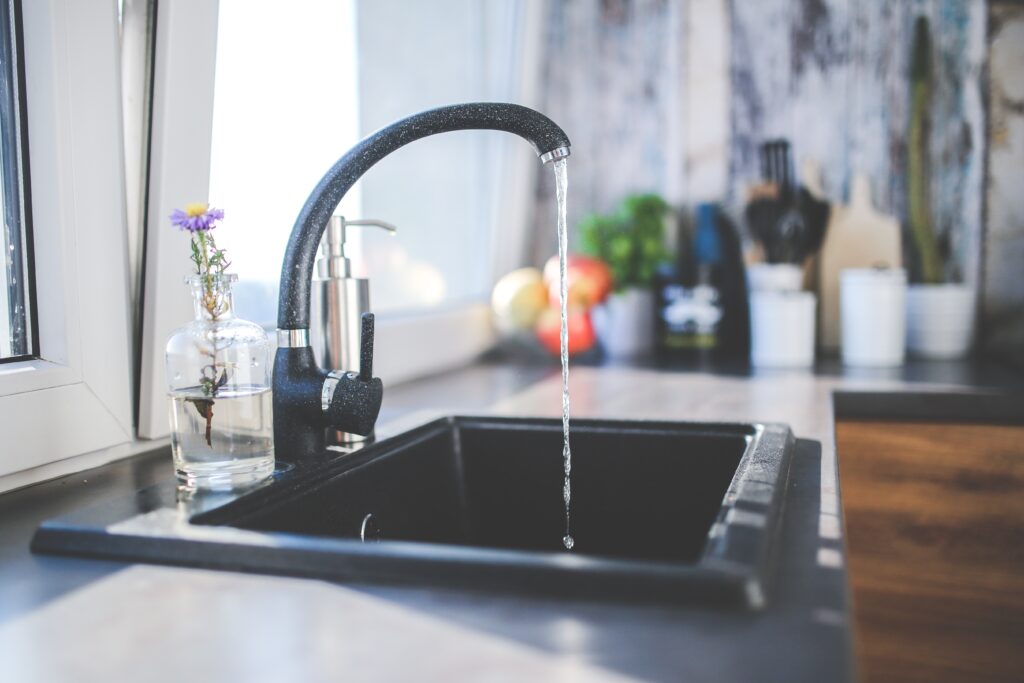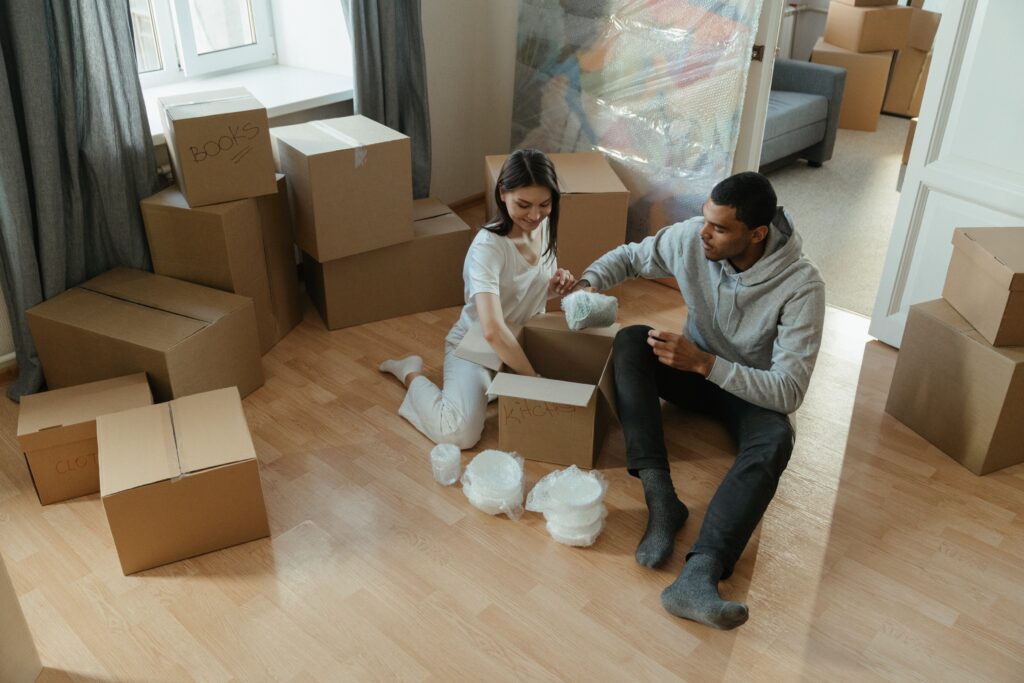Moving into a new house is like a milestone in life. It provides people with an opportunity to start their life anew. People generally have mixed feelings about their new abodes, no matter the reason behind the move. They often worry about settling into an unfamiliar location. Moreover, many have sentiments attached to their previous homes, and they feel emotional when leaving that space.
Finding a place that suits your taste, budget, and location preferences can be nerve-wracking. Once you have found a home, the next phase includes packing belongings and transporting them to the new house, equally challenging.
Many people dread shifting to new homes because they want to avoid the exhaustive work that affects their mental and emotional wellbeing. However, sometimes it becomes inevitable, and people have no choice but to move into a new house.
Let’s learn about some points that give an insight about the essential things to when you move into a new house:
1. Inspect the Place
An empty house allows you to scrutinize the nooks and corners and bring out the flaws to the fore that furniture often hides behind it. Before the arrival of moving trucks, take time to inspect the house to determine the areas that need some repairing,
You might need to refresh the paint or have broken grills in windows that often get overlooked. Several people use storage units while moving houses and want to bring their belongings to their new place as soon as they receive the keys. However, you must take advantage of an empty home and inspect it thoroughly before bringing things from the storage unit. Doing a walkthrough will give you an idea if the previous owner has held the promise and taken care of the agreed-upon maintenance.
Inspecting a home before moving in is critical since it can assist in detecting any plumbing problems, electrical issues, structural issues, and the presence of mold or pests are some of the most common issues that an inspection can uncover. These faults can be costly to repair and may cause problems with safety if not addressed. Recognizing these issues before moving in may save unexpected repair costs and guarantee that the home is safe and habitable. Furthermore, you may be able to bargain with the seller to have repairs completed or to lessen the purchase price to account for the repairs that will be required. Overall, performing an inspection before moving into a new house guarantees that you are making a sensible investment and that the property is safe and secure for you and your family.
2. Ensure that Utilities are Running
You cannot live a day without water, electricity, and the internet. Ideally, you must arrange your utility set up a day or two before moving to the new place. On moving day, run the taps and check electricity and gas to verify that they are working.
If any of the utilities fail to perform effectively, it can cause inconvenience and extra costs. For example, if the water supply is not working properly, you may need to purchase water in bottles or find alternative water sources until the problem is rectified. If your power is not working correctly, it can interfere with your ability to use appliances and lighting and may even constitute a safety issue.
It is best to set a utility check date a few days before your move-in date to allow for any repairs or maintenance that may be required. This will also allow you time to ensure that all utilities are operational and that any concerns have been resolved before you move in. Monitoring the utilities’ functionality before moving in will help you prevent last-minute shocks or difficulties and ensure that you are ready to settle into your new home easily.
Ensure that you take care of garbage pickup to avoid a mess in the house. While you can delay your magazines and newspapers subscriptions, you must see that the utilities are set up before bringing your family to settle in the new house.
3. Indulge in Deep Cleaning
Refreshing paint or installing new doors are not the requirements of moving into a new place. However, you must ensure that you bring your furniture and other possessions to a clean house. Check out the nooks and corners and dust them off to clean them off entirely.
Moving into a new property can be an exciting experience, but before you settle in, make sure it’s clean and safe. A thorough cleaning is required before moving in for various reasons. For starters, cleaning helps in the removal of any collected filth, dust, and allergens that may have formed in the property while it was vacant. This can enhance the air quality in your home, making it a healthier place for you and your family to live. Second, thorough cleaning can aid in the elimination of bacteria and viruses left behind by previous occupants, lowering the risk of infection or disease. This is especially critical during the current COVID-19 outbreak. A clean house is also easier to organize and unpack, making the process more efficient overall. In conclusion, spending time deep cleaning your new home before moving in is a tiny investment in your health and comfort that may make a great impact on your overall well-being.
Also, extensive cleaning before moving in might assist you in identifying any sections of the house that may require repair or maintenance. Cleaning each room carefully may reveal issues such as leaks, cracks, or other damage that might have gone unnoticed otherwise. This will allow you to solve any essential repairs before moving in your stuff, saving you time and money in the long run. Furthermore, a clean and well-maintained home might boost its resale value if you decide to sell in the future.
The new house might appear neat at one glance. Still mopping the floors and washing the walls before bringing things will give you the satisfaction that you dwell in a place where dust is not accumulating anywhere. You can call professional cleaners to do the job or take a mop and wear your cleaning gloves to do a deep cleaning.
4. Recheck the Delivered Boxes
Do not miss out on inspecting the delivered boxes. Several people think they pack and hand over the boxes to the movers; thus, there is no need to recheck the cartons. Movers were by themselves while transporting your precious possessions, and it is better that you recheck the delivered boxes.
It is critical to recheck the boxes after relocating to a new home to ensure that everything arrived securely and that nothing was misplaced or damaged during the transfer. Even if you meticulously name and pack each box, accidents can happen throughout the moving process. By rechecking the boxes, you can ensure that all of your goods have arrived and are in good shape, allowing you to file a claim with your moving company if necessary. Rechecking can also help you plan and arrange the unpacking process, making it easier and more effective. By carefully inspecting each box and its contents, you can guarantee your relocation is as stress-free and successful as possible.
It is not possible to examine every item, but you must go through the contents to ensure that the cartons were not opened in your absence. Moreover, it gives you a chance to recheck if the movers have delivered your belongings in their original condition.
5. Install the Security System
Security is the utmost concern of the modern world. You cannot compromise on your and your family’s safety in any case. If you are not opting for a full-fledged security system, change the locks. Aside from the main gate, change locks for every door.
Several houses are under maintenance before landlords’ hand them over to new owners. Maintenance workers, such as plumbers, carpenters, or painters, have keys in most cases. Although they give the keys back, you cannot be sure they have a spare one. Furthermore, when installing new locks, hiring a professional locksmith is essential to ensure that your new locks are correctly installed. As a result, you can significantly reduce your risk of unauthorized access and ensure that you won’t get locked out of your home unexpectedly, providing peace of mind for you and your family.
It is critical to ensure the safety and security of your new home, and installing a security system is an effective way to do it. You may deter crime and safeguard your home from burglary, theft, and other illegal activity by installing a security system. Modern security systems feature remote monitoring capabilities, allowing you to keep an eye on your home from anywhere using a smartphone or other device and presenting a visible discouragement to intruders.
This can give you real-time updates on any questionable behavior, allowing you to take immediate action if necessary. Furthermore, many insurance companies offer discounts to homes installing security systems, which can help lower your insurance premiums and save you money over time. A security system can also raise the value of your property, making it a wise investment for homeowners. Setting a security system can provide you peace of mind, knowing that your house and family are always safe and secure.
6. Unpack the First-day box
Unpacking is as time-consuming as packing. It is not humanly possible to unpack all or important boxes on your first day of arrival. Ideally, you must pack a separate essentials box and keep it handy. If you have babies, it must contain some granola bars, miniature toiletries, chargers, and your child’s related essential stuff.
Instead of waiting for all the boxes to arrive or starting unpacking right on the arrival day, unpack the first-day box. Relax and energize yourself before you indulge in another exhaustive unpacking process and settle in the new environment.
7. Unpack in an Organized Manner
People generally associate packing with moving but miss out on the subsequent unpacking process. Unpacking is equally exhausting and can clutter the area up. Plan the unpacking process, and do it in an organized manner. Do not open all the boxes at once. Bring labeled cartons to the related room and open them one by one. Set one room and then move to another one to have everything in place.
This can make unpacking more manageable and more efficient, helping you to settle into your new home sooner. Organizing your packing can help protect your belongings during the relocation. You can avoid damage and breakage by properly marking and packing each box with identical products, especially for fragile things. Additionally, correctly packing and labeling boxes might assist you in determining whether boxes contain fragile or costly items, allowing you to handle them with particular care throughout the move.
Furthermore, organizing your packing might help you stay focused and avoid stress during the move. By making and sticking to a packing plan, you can stay on track and avoid feeling overwhelmed by the process. This can help minimize stress and anxiety, making the relocation more enjoyable overall.
8. Get Familiar with the Surroundings
Setting the house up is not the only element of moving into a different location. It will help if you get yourself familiarized with the surroundings. Visit neighbors to have an initial chit-chat and initiate a friendly conversation. You can bake cookies or take other things and instill a warm bond with them. However, you must ensure that you do not visit at an odd time and keep the visit short.
Besides, learn the way to a nearby hospital, grocery stores, and schools and get accustomed to a new neighborhood.
Conclusion
Moving house is almost synonymous with packing and unpacking; however, moving into a new home has more to it. People often miss out on certain things as their minds run in all directions, by preparing a checklist aid in keeping track of tasks and saves time.
Setting up a new home is not a one-day job. Still, people need many things right after arriving in a new place. People must ensure that they pack an essentials box, have utilities set up, and are not entirely unaware of the surroundings. Keeping the tips mentioned above in consideration can make settling into a new home a breeze.



